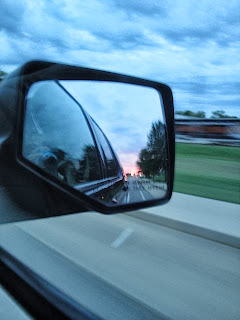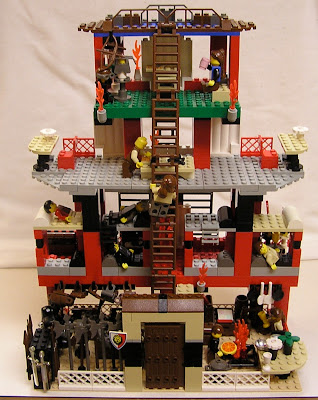For me,
world-building is the best and worst part of writing fantasy. It's the best because writing fantasy means that the details of the world are entirely up to you. If you decide that only royalty eat with their hands or that mermaids inhabit all freshwater lakes or that the Northeastern hillsides are smattered with little white flowers called
yipparis, then that's how it is. But with creative freedom comes a few hurdles.
Hurdle #1: You might not have to look up facts in a book, but you do have to make up all those facts out of your own head.
Jumping the Hurdle: Everything is based on real life, so look for inspiration. For example, every culture has music. I got a lot of ideas for instruments in Wynna's world in my World Music class.
Hurdle #2: The world you create has to be plausible, if not possible. Readers notice and get pulled out of the story if things don't work in a logical manner.
Example of plausibility: In C.S. Lewis's
Horse and His Boy, the two horses Bree and Hwin journey across the desert. As Bree says, galloping all day and night isn't horsely possible, so although it might seem less dramatic, they walk and trot their way to the other side (it's quite thrilling in the end).
Jumping the Hurdle: Maybe you do have to look up some of your facts.
Free image courtesy of freedigitalphotos.net
Hurdle #3: Since fantasy is such an established genre, if you don't do something very unique your story will end up generic, like a cardboard props. But sometimes those clichés seem unavoidable. Take Wynna as an example. Travel cloaks are one of the same-old same-olds of medieval fantasy, but I can't get rid of it! Wynna
needs a cloak when she's blasting through the clouds on dragonback at over sixty miles an hour.
Jumping the Hurdle: Weave the cloak from the threads of glowworms, because it makes Wynna stand out from the Coal Lizard riders black camouflage. Give it details that make it specific to your story and your world.
Hard as it is, world-building can be done! J.R.R. Tolkien is a classic successful example. K.M. Weiland who wrote
Dreamlander is also a fantastic world-builder. So, there is hope.
What do you find hardest about world-building?












































